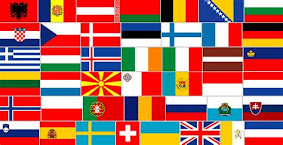by Jaenelle Antas
This study has been cited all around Australia and I’ve even seen some global news sources carrying it, despite the fact that it doesn’t really pass academic rigor and the “conclusions” are really just assumptions, possibly based on the researcher’s own biases.
A self-selecting sample of Australians who live in Perth, attend fireworks displays, and agree to an interview are hardly representative of all Australians. The researcher, Professor Farida Fodzar of the University of Western Australia, specialises in race relations, a field of sociology/anthropology that sets out to imagine racial conflict and racist motivations where there are none. If there were no racism, she’d be out of job, after all.
Furthermore, none of the questions actually ask about racist views. Fodzar and the media are equating patriotism with racism, which is incorrect. Patriotism is the love of and devotion to one’s country. Racism, in this context, is intolerance of others based on their race. Patriotism has nothing to do with racial intolerance in and of itself, though one who is patriotic may be intolerant of those who are undermining the country they love, regardless of the race of those people.
Let’s break down some of the findings of the study which were reported in the above linked article:
Professor Fodzar said the team found that of the 102 people surveyed on the day who had attached flags to their cars for the national holiday, 43 per cent agreed with the statement that the now-abandoned “White Australia Policy” had “saved Australia from many problems experienced by other countries”.
She said that only 25 per cent of people who did not fly Australia car flags agreed with the statement.
Under the “White Australia Policy”, which was non-official government policy until after World War II, non-Europeans were barred from migrating to Australia.
It’s no secret that multicultural/multiracial societies have serious problems resulting from conflicting values and lifestyles. It’s not outrageous that some people might think that the net loss from the conflict caused by racial and cultural diversity outweighs any potential or imagined gain. However, such views do not necessarily make one “racist”. And indeed, it’s entirely possible that many of those who believe that the White Australia policy was a good policy were direct beneficiaries of it themselves.
The survey also found that a total of 56 per cent of people with car flags feared for Australian culture and believed that the country’s most important values were in danger, compared with 34 per cent of non-flag flyers.
If a flag-flyer is a patriot (and if one isn’t, why fly the flag?), then a concern for preserving Australian values is legitimate and expected. The values of yesterday are not the same as the values of today and anyone with open eyes can see them changing right before us. A patriot who loves his country and sees it changing into something unrecognisable will be understandably concerned and upset.
But this doesn’t make one a racist. The implication of the word “racist” is usually that the racist is white. It’s rarely spoken, but always assumed. In fact, a non-white Australian could just as easily be concerned about the decline of important Australian values as much as any white Australian. But even if the person in question is white, race still isn’t necessarily a factor. Most of those leading the drive to destroy traditional values are themselves white, so here it is a conflict of ideology, not race.
Thirty-five per cent of flag flyers felt that people had to be born in Australia to be truly Australian, compared with 22 per cent of non-flag flyers.
Again, not a racist view. Australian immigrants come from every corner of the globe, with the United Kingdom leading the top of the pack. The question here is one of supposed dual loyalty or lack of loyalty to one’s adopted homeland, but not one of race. In America, people who hold this view are called racists and the accusers get away with it because almost all immigrants to America these days are non-white and it makes a convenient red herring in the immigration debate. But despite an end to the White Australia policy, Australia still has significant European immigration and a quarter of Australians are foreign born.
Twenty-three per cent of flag flyers believed that true Australians had to be Christian, while 18 per cent of non-flaggers agreed with the statement.
This is just an example of how non-academic this study is. Not only does Christianity have nothing to do with race, but a 5% difference in opinion may well be covered by the margin of error. We’re not told what that margin is, but considering the sample is small and non-representative, it’s likely that the margin of error is 5% or even higher. We don’t know, but this point seems to be thrown in only to denigrate Christians.
An overwhelming 91 per cent of people with car flags agreed that people who move to Australia should adopt Australian values, compared with 76 per cent of non-flaggers.
This is a statement that even the Australian government endorses. In order to be granted permanent residency or citizenship in Australia, one must sign a declaration promising to adhere to and uphold Australian values. Refusing to do so is grounds for denial. In fact, most governments of the world that allow mass immigration at least pay lip service to integrating immigrants. In order to integrate, it necessarily follows that one must share things in common with one’s host population. In any case, the vast majority of both flag flyers and non flag flyers agreed that immigrants should adopt Australian values.
Only this could be said to have a slight tone of racial or cultural superiority, but it’s unfair to assume that racism is the motivating factor in those holding this view. It’s not inconsistent with the idea that immigrants should try to fit in with an Australian way of life and some may rightly believe that the ways of some immigrants are totally opposed to Australian ways.
Neither are we given any information on the people who agreed with that statement. Some of those who agreed with the statement may themselves be migrants who have made a great effort to adapt to the Australian way of life and expect other newcomers to do the same. One cannot simply assume this belief is based on racism, as people may have a wide variety of reasons for thinking migrants should assimilate.
It does not even mean one is opposed to immigration. In fact, many of these flag flyers might be so enamored with the Australian government’s immigration policies that it has inspired deep patriotism and pride in their country. If the question of whether or not one supported immigration in general was asked, it wasn’t reported upon.
Fodzar is simply engaging in Australian-bashing for publicity’s sake. Her research is shoddy and her conclusions appear baseless. Her conclusions about “racist” attitudes come from a whopping 102 people, about whom we have been given no demographic information. She went into the study with preconceived notions and came out with useless data that serves to validate what she and her ivory-tower colleagues already believe, while they look down their noses at ordinary people who aren’t as “enlightened” as they are.
Flying the flag of one’s nation should be considered a positive thing and patriotic attitudes should be desired from the populace for any number of reasons. If Fodzar (who was born in Brunei) is offended by patriotism for her own adopted country or views it with negative connotations, perhaps she should reconsider her citizenship.




























No comments:
Post a Comment
Your comment will appear after it has been checked for spam, trolling, and hate speech.